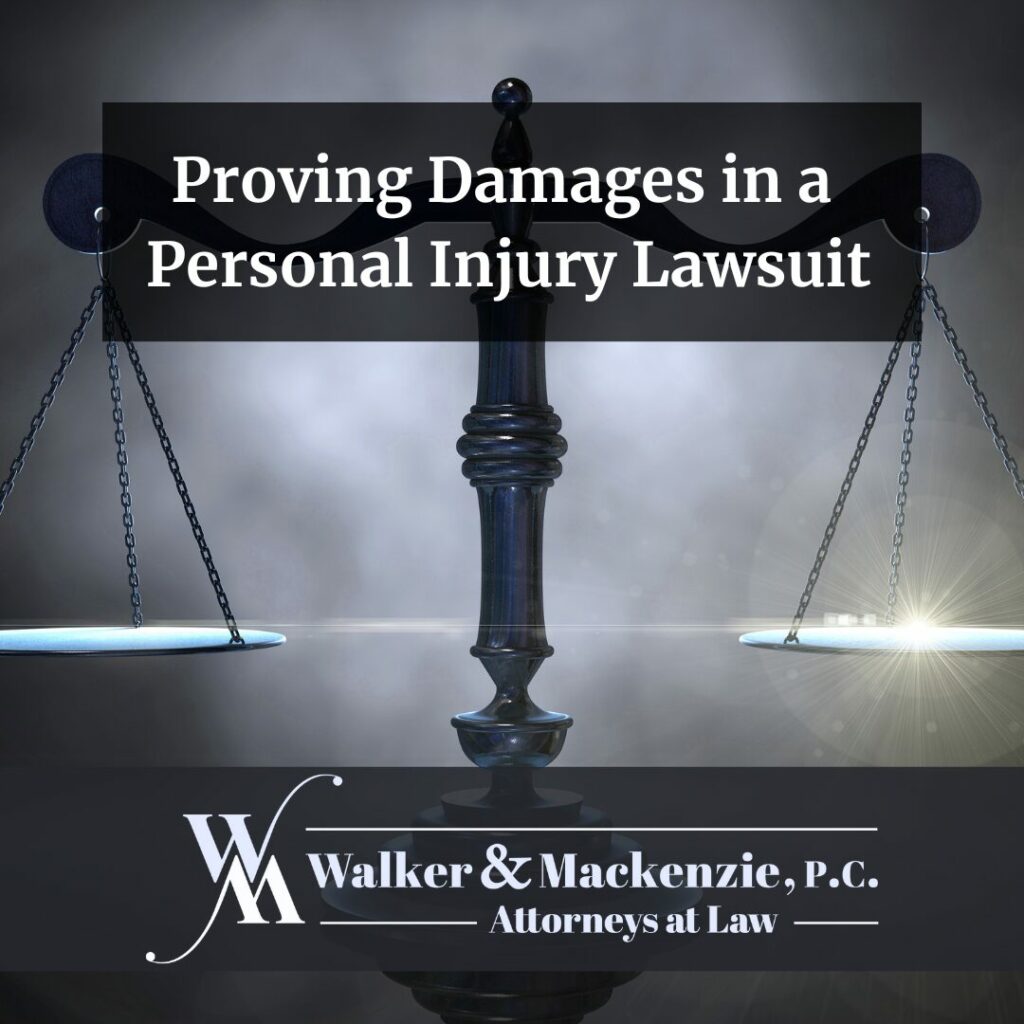Proving Damages in a Personal Injury Lawsuit

Understanding Personal Injury Laws in New York
In New York, personal injury laws are governed by a combination of statutory laws, court decisions, and legal principles. Generally, personal injury cases in New York fall under the theory of negligence, which requires demonstrating that the defendant owed a duty of care, breached that duty, and the breach directly caused your injuries. To obtain compensation, you must also prove the damages you have suffered as a result.
Compensatory Damages
Compensatory damages are intended to compensate you for the losses you have incurred due to the injury or injuries that you have sustained. In New York, compensatory damages can be divided into two categories:
- Economic Damages: Economic damages cover the actual monetary losses you have suffered. These damages include medical expenses, lost wages, property damage, rehabilitation costs, and any other financial losses directly related to the injury. It is crucial to gather all relevant documentation and evidence to substantiate these economic damages.
- Non-economic Damages: Non-economic damages cover the intangible losses that are not easily quantifiable. These include pain and suffering, emotional distress, loss of consortium, loss of enjoyment of life, and scarring or disfigurement. Proving non-economic damages can be challenging, as they require presenting evidence of the impact the injury has had on your daily life and overall well-being.
Proving Damages
To successfully prove damages in a personal injury lawsuit in New York, the following must be considered:
- Medical Records: Medical records play a vital role in establishing the extent of your injuries and the necessary medical treatments. If there is no documentation or improper documentation of your treatment or the injuries that you have sustained, proving damages in your personal injury case may be impossible.
- Expert Testimony: Expert testimony from medical professionals can further support your claim by explaining the long-term consequences of the injury and the need for ongoing care or therapy.
- Documentation of Economic Losses: Keeping detailed records of all economic losses is crucial. This includes medical bills, receipts for medications and therapies, pay stubs, tax returns, and any other relevant financial documents that demonstrate the financial impact of the injury.
- Journaling: Maintaining a personal journal can help you document the physical and emotional pain, limitations, and difficulties you face on a daily basis.
- Witness Statements: Obtaining witness statements from individuals who can corroborate the changes in your lifestyle and the effects of the injury can strengthen your case.
- Expert Analysis of Future Damages: If your injury results in long-term or permanent disabilities, it may be necessary to seek expert analysis and testimony regarding future damages. This can include estimated costs of ongoing medical treatments, lost earning capacity, and the impact on your quality of life.
Comparative Negligence
New York follows a comparative negligence system, which means that the compensation you receive may be reduced if you are found partially responsible for the accident. For example, if the court determines that you were 20% at fault, your compensation may be reduced by that percentage.
Proving damages is a crucial aspect of a personal injury lawsuit under New York law. It requires careful documentation, expert testimony, and persuasive evidence to demonstrate the extent of your losses. Seeking legal representation from an experienced personal injury attorney is essential to navigate the complexities of New York’s legal system and maximize your chances of obtaining fair compensation. Take the vital first step by contacting one of the experienced personal injury attorneys at Walker & Mackenzie, P.C. today. We offer free, no obligation, consultations to review your personal injury case.